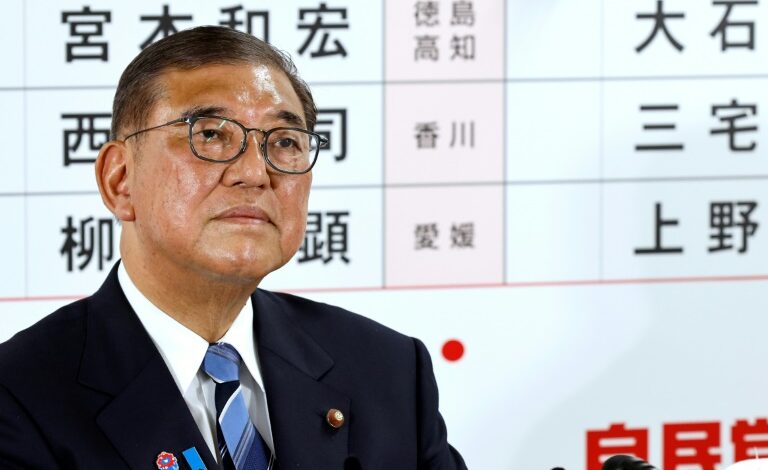Shigeru Ishiba Resigns as Japan PM Amid Election Fallout

BREAKING: Shigeru Ishiba has officially resigned as Japan’s Prime Minister following a devastating electoral defeat for the ruling Liberal Democratic Party (LDP). The announcement, made just hours ago, comes in the wake of the LDP’s poor performance in the upper house elections held in July 2024, where they suffered their worst results in over 15 years.
At 68 years old, Ishiba, who had only taken office in September 2024, stated he would “step aside and make way for the next generation” amid mounting pressure from party members for a fresh leadership election. This rapid downfall has sent shockwaves through Japanese politics, as the LDP has been in power almost continuously since 1955.
In his brief tenure, Ishiba had aimed to “create a new Japan” and tackle the urgent issues of a declining population and revitalizing rural areas. However, his plans backfired spectacularly, leading to a loss of the coalition’s majority and forcing the LDP to negotiate with opposition parties to pass essential legislation.
Public discontent had mounted during Ishiba’s administration, particularly due to rising prices, with rice costs doubling since last year. His government’s approval ratings plummeted, reflecting the frustration of voters. Additionally, Ishiba faced criticism for his cabinet appointments, which notably included only two women, down from five under his predecessor Fumio Kishida.
Ishiba’s resignation is not only a significant political shift but also poses challenges for the LDP as it seeks to regain the confidence of the electorate. The party now faces a leadership vacuum and must quickly regroup to prepare for upcoming elections.
The departure of Ishiba, a self-identified defense enthusiast, leaves a notable gap in leadership. Known for his sometimes awkward public persona—he has been the subject of social media memes for his behavior in parliament—his resignation will likely spark further discussions about the future direction of the LDP.
In international relations, Ishiba’s tenure included a mixed bag of challenges, notably with U.S. President Donald Trump. Just this past week, Trump signed an order to reduce tariffs on Japanese automobiles from 27.5 percent to 15 percent, a significant win for Japan, yet overshadowed by Ishiba’s domestic struggles.
As Japan braces for a new phase of leadership, all eyes will be on the LDP to see who will emerge as Ishiba’s successor and how they plan to address the pressing issues facing the nation.
Stay tuned for more updates on this developing story as Japan navigates this critical political transition.






